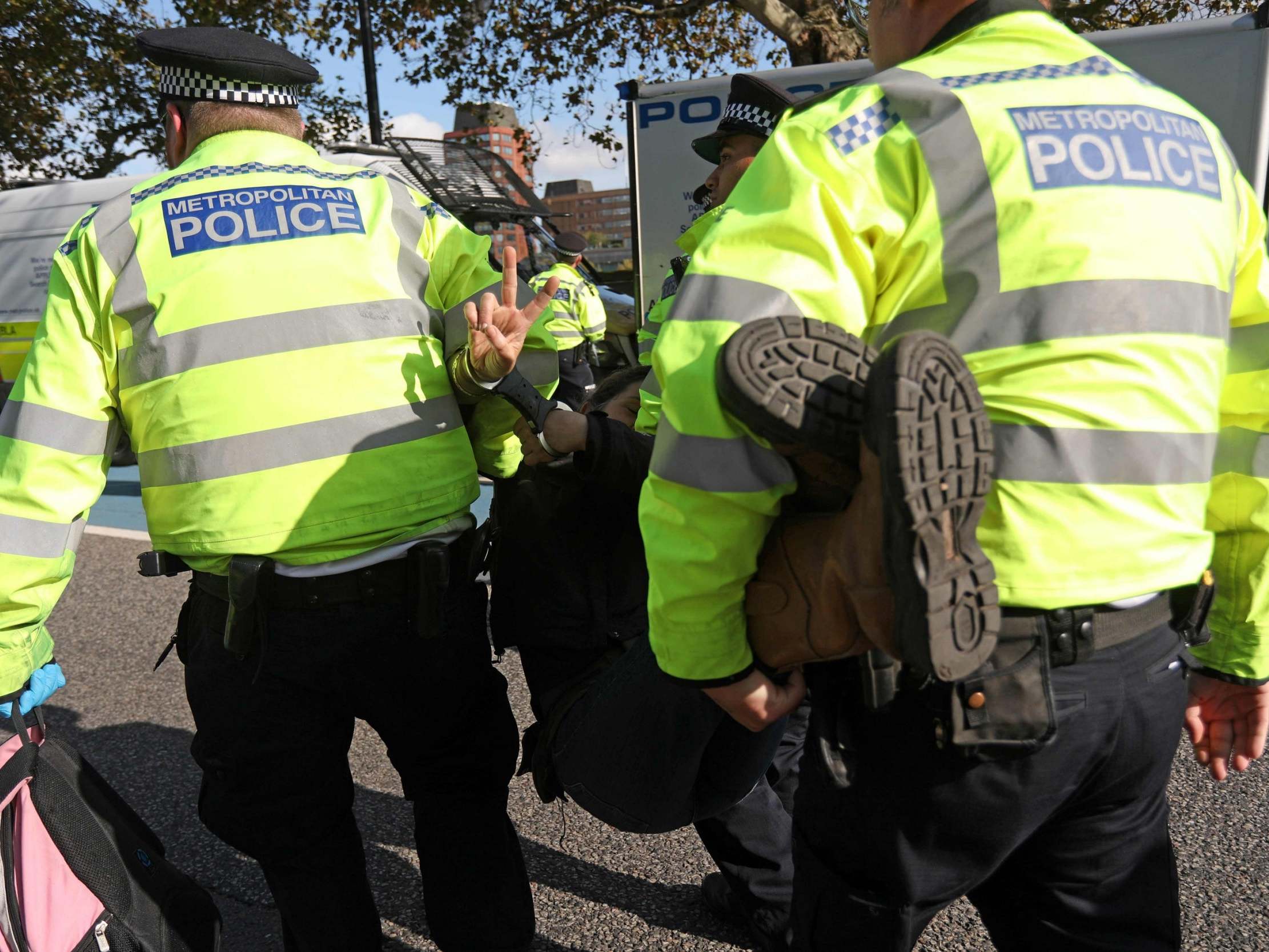Can the police ban really end the Extinction Rebellion protests in London?
Analysis: Demonstrators are challenging the ban in court – while others are ignoring it completely, writes Harry Cockburn


By their very nature, protests are designed to cause inconvenience. While this will inevitably prove to be awkward or frustrating for some, the right to peacefully protest is protected by the European Convention on Human Rights.
Late on Monday night, the Metropolitan Police announced an unprecedented city-wide ban on Extinction Rebellion demonstrations in London.
This wholesale ban of any assembly of people associated with Extinction Rebellion has prompted outrage among activists while many lawyers have publicly expressed major doubts over the ban’s legal footing.
On Tuesday, protesters defied the ban as the demonstrations entered their ninth day, and Extinction Rebellion has said it will challenge the Met’s ban in court.
Human rights lawyer Tobias Garnett, working for Extinction Rebellion, said the group would be filing a High Court claim challenging the ban on the grounds it is “disproportionate and unlawful”.
Instead of using traditional powers to ban protests which are deemed a significant concern, the Met said the ban was a result of a number of breaches of section 14 of the Public Order Act, for which the police do not require the approval of the home secretary.
This allowed police to clear numbers of activists from Trafalgar Square and Vauxhall Pleasure Gardens.
But it also means any small groups of protesters affiliated with Extinction Rebellion, congregating anywhere in London, are now in breach of the law.
According to legal experts The Independent spoke to, there is little precedent for the use of section 14 for a peaceful protest, and legally it must be balanced against the rights to freedom of expression and freedom of assembly, which are protected under the European Convention of Human Rights. The experts also suggested the police may have recognised such a ban was unlawful, but used it as a rapid means of clearing protesters.
The police claim previous conditions on the protests had already been imposed and those have not been adhered to, and that is what has led to them taking this step. However, it is not clear exactly what those conditions were.
Liberty, the human rights and civil liberties organisation, said the Met’s decision had grave consequences for future protests.
Gracie Bradley, the organisation’s advocacy and policy manager, said: “Banning Extinction Rebellion from protesting in London is a grossly disproportionate move by the Met, and an assault on the right to protest.
“Their heavy-handed use of this power sets a dangerous precedent. Freedom of expression and assembly are fundamental rights, protected by domestic and international law. The courts have made clear that a protest is not unlawful just because it’s disruptive.”
The police have said the ban was made “to get London moving again”.
Deputy assistant commissioner Laurence Taylor said: “I want to be absolutely clear, the conditions ... do not in any way ban protests from London, nor do they ban the activities of Extinction Rebellion as a group. These conditions specifically state that any assembly linked to Extinction Rebellion’s Autumn Uprising must now cease.
“Previous conditions which stated Extinction Rebellion could lawfully protest in the pedestrianised area of Trafalgar Square were repeatedly breached. The decision to impose further conditions was made in order to help us get London moving again. It is a lawful decision which we felt is entirely proportionate and reasonable to impose after nine days of sustained, unlawful assembly and protest by Extinction Rebellion.
“If Extinction Rebellion or any other group come to us with a proposal for a lawful protest, which does not cause the serious disruption to London we have witnessed over the past nine days, then of course we will discuss that. But what we cannot allow is for central London to be brought to a standstill.”
In response to the ban, Extinction Rebellion said in a statement: “The climate and ecological emergency isn’t going away and we remain resolute in facing it.
“We urge the government and the authorities to join us in doing the same. We cannot do it alone.”
So far around 1,500 people have been arrested in connection with the protests, and before the legal foundation of the Met’s ban is tested in court, there are likely to be many more.
Join our commenting forum
Join thought-provoking conversations, follow other Independent readers and see their replies
Comments